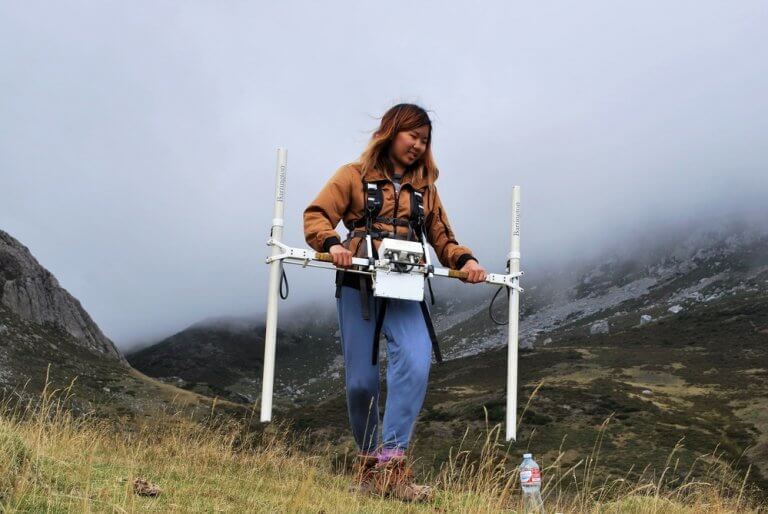
To pursue knowledge is to constantly break through limits. A great embodiment of this spirit? Women in STEM.
From smashing gender stereotypes to enduring structural difficulties, women are the revolutionaries trying to make the sciences a less daunting field to study, work and thrive in. Women and STEM can seem like two mutually exclusive forces, although their potential when combined can be formidable. In the UK, one institution is banking on the latter: Durham University.
Durham’s dogged commitment to gender equality in this male-dominated field is clear. Faculty are young, diverse and boast impressive résumés – a feat considering that across the world, women are still significantly underrepresented in these fields. United Nations data reveal women make up only 28.8 percent of researchers globally, and this includes staff employed both full- and part-time.
Challenging this is Durham’s team of female scientists and engineers at the cutting-edge of the disciplines, making a major contribution to world-leading research. And they want more strong, ambitious women to join them.
“There’s a lot that young women can do for science and I want to encourage them,” says Dr Zanna Clay, Assistant Professor in Department of Psychology.
History shows Durham’s consistent support for female students and faculty. As early as 1892, Ella Bryant became the first woman to earn a Durham degree, passing the BSc examination with second class honours in physics. The university applied for a supplemental charter “almost immediately” after this, allowing it to grant degrees to women in all subjects but divinity, permitted in 1895. Bryant finally got her degree three years later.
This ground-breaking streak continues today.
Last year, Assistant Professor Dr Charlotte Adams was awarded the Aberconway Medal by the Geological Society, a prestigious accolade reserved for excellence in applied geoscience, reflecting Charlotte’s trailblazing work in ultra-low enthalpy geothermal energy. The university also holds a bronze award by the Athena SWAN Charter, which celebrates good employment practice for women in (STEMM) employment in higher education and research. It’s now on a mission to achieve the silver rating.
Creating an inclusive culture is a campus-wide effort in Durham. Last year, the university led a consortium of universities and companies which received nearly £600,000 aimed at boosting the representation of women, disabled, LGBT+, BAME in Engineering and Physical Sciences in the North of England.

Source: Durham University
The two-year project will address the problem of entrenched underrepresentation through activities such as cross-organisational mentoring programme, reverse mentoring (where staff from underrepresented groups mentor senior staff about the challenges they face) and increasing collaboration with industry.
Professor Emma Flynn, Programme Director and Associate Provost at Durham University, said there are “serious consequences” when women and other minority groups are not represented in vital industries like engineering and physical sciences. She hopes this project will be a good first step towards solving the issue.
“This scarcity has serious consequences: not only is it bad for equality; it limits our collective ability to tackle some of the most pressing and complicated issues facing our world today.
“We hope this project, and the activities within it, will make a bold step towards a more inclusive culture in these regional sectors, a more diverse pool of talent and creative minds, and, ultimately, better science and engineering that will benefit us all.”
The university also received over £500,000 from the Institute of Coding (IoC) to launch a new programme to retrain women in technology. One hundred women across the north and midlands will have the chance to retrain in the digital sector during the six-month online programme that will cover modules like data science, machine learning, project management and public speaking skills.
Durham’s Professor Sue Black, who founded the UK’s first online forum for women in tech, has led on the development of the programme with her colleague, Professor Alexandra Cristea, and partner universities.

Source: Durham University
It can’t be overstated that these are timely and crucial projects. In engineering, the gender gap is particularly striking – just 7.5 percent of female engineers and physical scientists had gained their current position by way of a formal promotion, compared with 15.6 percent of men. Tech, with a dismal five percent of leadership roles held by women, does not fare any better.
Yet, research tells us that having more women in STEM can only lead to good outcomes. For students, it could lead to higher PhD completion rates. A study by Ohio State University, covering 2,541 students enrolled in 33 doctoral programmes in scientific fields at six Ohio public universities, found that higher numbers of women starting out in a particular doctoral programme led to higher graduation rates in that programme.
Noura al-Moubayad, Assistant Professor in Computer Science, knows the importance of having female colleagues and leaders. She herself was inspired to pursue this career pathway by her mother, an engineer herself.
“We need more people in science. And more people means more women and men. For me, if men can do it, then women can probably do it better,” she concludes.
Follow Durham University on Facebook, Twitter, YouTube, WordPress, Weibo, Instagram and LinkedIn







